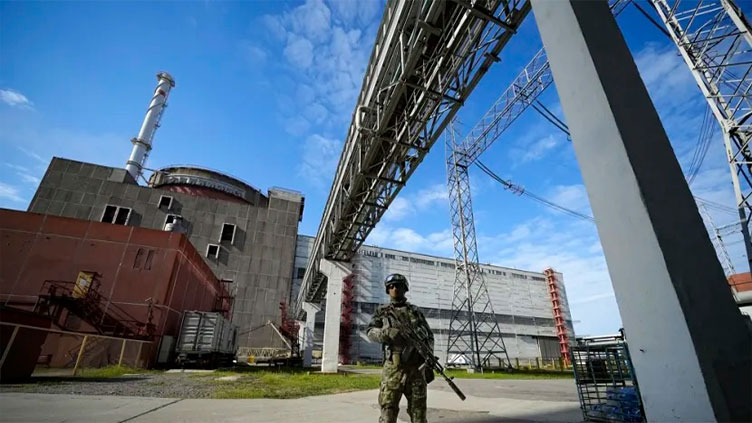Bracing for a harsh winter: Russian attacks pummel Ukraine’s energy network

World
Ukraine says Russia is using winter as a weapon, and deliberately striking its energy infrastructure
KYIV (Agencies) - Ukraine is bracing itself for a harsh winter, as Russian attacks hit the country’s power plants and electricity substations.
The country, which is scrambling to repair and replace gas and electricity supplies for the winter heating season, now faces an energy crunch aggravated by rising costs globally due to the war.
Ukraine believes Russia is using winter as a weapon, and deliberately striking its energy infrastructure.
It is restricting electricity usage nationwide, following a barrage of Russian missile and drone strikes that have destroyed some power plants just before the cold winter months set in, Reuters reported on Thursday (Oct 20).
"We are preparing for all kinds of scenarios in view of the winter season," Ukrainian President Volodymyr Zelenskyy said in his Wednesday night video address.
“We assume that Russian terror will be directed at energy facilities until, with the help of partners, we are able to shoot down 100 per cent of enemy missiles and drones.”
Earlier this week, he said a third of his country s power stations had been hit by Russian air strikes.
In war-ravaged Bucha, a suburb north-west of the capital Kyiv, Russian attacks have disconnected the town from the rest of the country’s gas network, in turn damaging the entire heating system.
As winter approaches and temperatures drop, some repairs have become more urgent.
The process of repair and replacement is repeated each time Ukraine retakes territory.
RISING ENERGY COSTS
The rising costs of electricity and gas have also worsened the situation.
The Zaporizhzhia nuclear power plant, which used to supply a fifth of the country’s electricity, has been the target of frequent shelling and attacks by Russian forces since March.
Its shutdown, combined with global pressures, is sending prices soaring.
Meanwhile, the local authorities are trying to find ways to help struggling households.
Ms Anastasia Vyhivska of the Bucha City Council, said during this period, the authorities “are leaving tariffs at the level of the previous one”.
“However, the difference will be compensated from the local budget,” she added. “This way, we will slightly reduce the burden on the population.”
Bucha resident Yulia Pavlichenko and her family left the town in March, ten days after Russian soldiers arrived. They own an apartment in a new complex next to an electricity substation, which was badly damaged from Russian attacks.
When she returned to her parents’ home in Bucha, she found that the utilities were working properly.
But whenever outages occur, household appliances are affected. The refrigerator, for instance, gave off an unpleasant smell and had to be cleaned, she added.
WEATHERING THE STORM
Officials said they can weather the storm for now.
Despite the challenges, some battlegrounds that have been subjected to continuous heavy bombardment are slowly recovering.
It has been months since Russian forces retreated from the badly battered town of Irpin, which is north-west of Kyiv.
“There was no water, no sewage (system), no gas, no electricity, mobile communications did not work, and the streets were completely impassable, filled with rubble,” said Irpin mayor Oleksandr Markushyn.
“Within a month, we completely restored water supply, sewage, electricity and gas supply, sorted out the rubble in the streets, launched buses, resumed railway communication, and built three bridge crossings.

